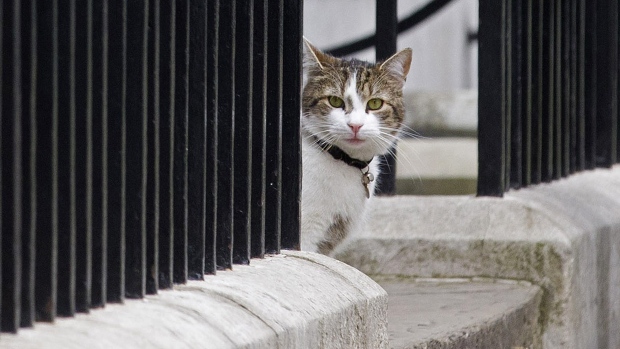"Plans?" He raised his eyebrows
Thrust his big head toward ours.
(Smiling again.) "Is this some kind of test?"
He said. "Just let us have the reins.
We'll do the rest.
You're in safe hands. It's best."
"Plans?" He raised his eyebrows
Thrust his big head toward ours.
(Smiling again.) "Is this some kind of test?"
He said. "Just let us have the reins.
We'll do the rest.
You're in safe hands. It's best."
Fleece. Great jumpers.
I heard the swifts.
They were tiny,
Crossing the summer moon.
She asked me to take a look at her computer. I said, "There's no point. I know what they look like".
A thousand lies, a million tears.
A hundred years from now, who cares?
Collected less than an hour ago and still fresh
A. Are you alright?
B. I'm alright. It's them others!
(pause)
A. Whose mothers?
According to The Times (p.12, 13 July 2016)
"Drinking a large glass of water with a meal tricks the brain into thinking you are full, researchers say."
The article does go on to elaborate what the 19 people in the study consumed: 50 ml or water, or 350 ml. Those that drank the greater amount felt fuller.
I don't have any difficulty in believing the findings, even though it was not a proper double-blind trial. (The subjects at least must have an idea how much they drank, even if the researchers didn't.) My own self-experiments, using beer rather than water, strongly confirm the results of the study and suggest it is a repeatable effect, although lacking the surprise factor somewhat.

Today I made a train journey. When I got back I was hot and bothered; and hobbling a bit, the result of an old apple-scrumping injury that plays me up now and again.
Being lame, I thought I'd take the long way home. It's quite a pleasant walk on a summer day and doesn't involve any hills.
I'd forgotten about the stile.
You'll never guess what happened. I was having a real struggle – but suddenly a dog appeared out of nowhere and helped me over the stile. It was one of those big Swiss rescue dogs.
Incredibly, under its chin it carried a miniature cask of chilled alpine spring water. I would never have believed it, if I hadn't seen it with my own eyes.
(Ed. Such a big story. Someone stopped their car and offered him a lift home is all.)
Contactless cards? Too risky. I wouldn't touch them.
I didn't like being buked in the first place. When I was rebuked I took it badly.
We're expecting business to go crackers this Xmas, so we've recently enrolled some Swiss elves.
Not sure about their humor, but "time will tell" as you might say! Their first effort has a rather pedantic feel to it though.
Question: What shoes are worn by European brood-parasitic birds?
Answer: Cuckoo clogs.
See what I mean?
I'm meant to be on a diet. But whenever I start eating German sausages, things just go from brat to wurst.
Did you know that cornflakes contain metallic iron, in finely
powdered form, as a dietary supplement. It's only 2.4 mg per serving
but...
So strong are neodymium magnets that if you float cornflakes on a bowl of water they can be steered about by the attraction of the magnet. It works best with the ones in the middle: those near the sides probably have some surface tension forces on them as well.
If you don't believe me try it. Steering cornflakes is the best feeling.
She threw a jug at me. What an absolutely beautiful parabolic trajectory!
That's what I call pottery in motion.
I loved Judo for years. But then I threw it over.
My abacus is broken again. I just can't count on it.
They swore that It was true. Surprise, surprise,
It turned out someone had been telling lies.
The other day I receiver a parcel marked "Feathers from the goose that laid the golden eggs."
Well I ask you!
Returned to sender and wrote upon it: "There's no way I'm going to take this lying down."
The Pound's gone down. I feel much lighter already.
The marvelous poem I mentioned led me to seek out the painter.
Here is a landscape I think is very good*. It reminds me of many others I admire.
It came from this article on Bryan Wynter
http://www.artcornwall.org/interviews/Michael_Bird_on_Bryan_Wynter_and_St_Ives.htm
* If I get a take down notice for this work, I shall of course move it to the floor.

Just a few weeks back an old school friend died in extremely sad circumstances.
I thought briefly that I might be able to write a requiem, but I see now that I can't.
Whatever I produced would be a poor imitation of the poem in the title. It was the first thing that came in to mind when I heard the news, even while I was still listening on the phone.
Dear Bryan Wynter
I love it for the voice: matter of fact, but still wondering why a person can be gone, yet we feel them close.
Bryan Winter was a real person, and here you can hear the background to what I think is a marvelous poem. You will also be able to hear the poet's own voice.
http://www.bbc.co.uk/programmes/p01f117r
The circumstantial detail: the blue hat, the long legs, the foxglove, the church: wormed their way inside my head the first time I read the poem.
The complete poem is here.
This blog might contain posts that are only visible to logged-in users, or where only logged-in users can comment. If you have an account on the system, please log in for full access.